“I never get to discuss guitar in most interviews!” Franz Ferdinand’s Alex Kapranos reveals his obscure vintage gear obsessions, how Peter Green was a huge influence on his playing, and why the thrill of guitar is undeniable
The Franz Ferdinand leader rarely gets to talk guitars. He shares his love of vintage Japanese instruments, explains the process of demoing, looping and mic’ing on new album The Human Fear – and reveals why the secret to studio success is that there’s no secret
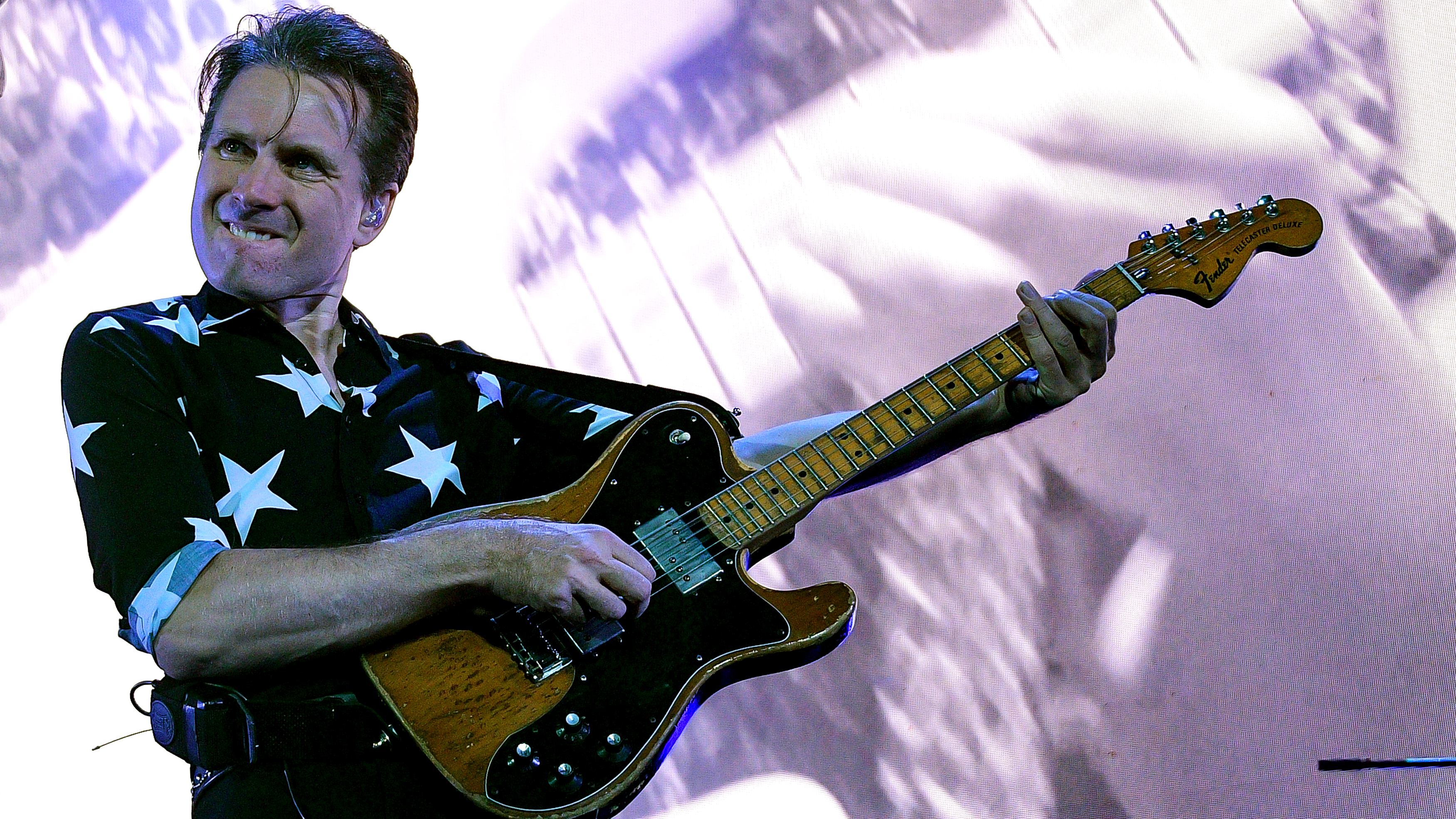
Often dubbed post-punk, Franz Ferdinand have always had an uncanny ability to combine art-school finesse with hard-hitting rock – never better illustrated than on their breakthrough 2004 hit Take Me Out.
When debut single Darts of Pleasure arrived they were lauded as indie heroes, flying the flag flying for guitar-driven rock when it was falling from favor. But everything changed when Take Me Out came next and turned them into full-fledged stadium rockers. Their subsequent four albums gave them success on both sides of the Atlantic, and a fanatical following in South America and Japan.
Their influences are difficult to trace. Sure, there are elements of ’60s UK and European pop, a hint of the Strokes, some left-field Eastern European melodies and maybe a touch of the Velvet Underground; but whatever they do, it always comes out sounding like Franz Ferdinand. They even embraced a strong disco vibe on their 2018 album Always Ascending.
Franz Ferdinand’s new record, The Human Fear, brings their catalog to just six studio releases in 22 years, raising the question: why so few? Singer/guitarist Alex Kapranos’ response is simple. “I want to put the records out when they’re ready. We’re quite lucky with our label, Domino, as they have that old-style indie mentality that means they just go with what the artist wants to do.”
The Human Fear is a return to the brisk angularity of their earlier records. Many of the songs embrace a stripped-back, tautly minimal approach that puts the emphasis squarely on the song. Recorded and mixed between April 2023 and April 2024, with a chunk of time taken out in the middle to tour their greatest-hits album, The Human Fear is probably the most Franz Ferdinand-sounding album they’ve made.
Kapranos is particularly excited to be discussing it with Guitar World. “This is the interview I was most looking forward to when I saw the scheduled PR spots,” he says. “I never get to discuss guitar in most interviews!”
The last album had a lot of dance/disco elements, whereas this one is much more stripped back. Was that a conscious decision at the start of the recording process?
Get The Pick Newsletter
All the latest guitar news, interviews, lessons, reviews, deals and more, direct to your inbox!
“The difference with this album is that we went in with all the songs not only written, but fully arranged. We did a lot of demoing so we knew exactly what the album would sound like. Many songs went through some radical changes.
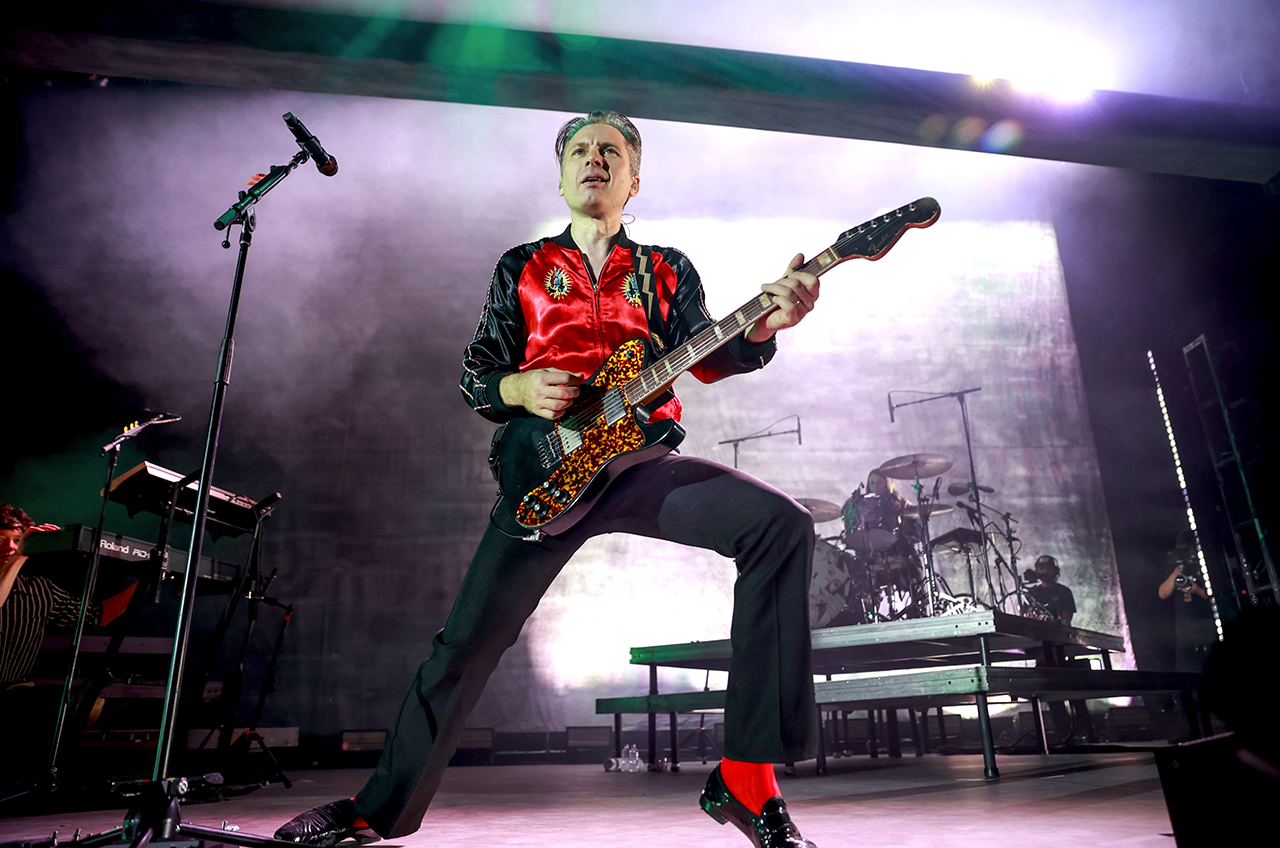
“A good example is Everydaydreamer, which started out as a slow, heavy, rock song – I’m a huge Black Sabbath fan – then it changed into a disco kind of thing before it ended up in its present form, which is a very stripped back, bass-led sound. I like the fact that if a song is strong, you can push and pull it into all kinds of different shapes.”
Every track is instantly identifiable as a Franz Ferdinand song. Do you find yourself rejecting ideas because they don’t sound like that?
“I love when you can tell who an artist is as soon as you hear them. All my favorites are like that; if I hear PJ Harvey or Leonard Cohen, I know it’s them right away. I think a band should really embrace its identity and be comfortable with it.
“That doesn’t mean you can’t search for something new. The trick is to not try to reinvent yourself, but to be comfortable with yourself. When bands reinvent themselves, it almost seems like they’re embarrassed by who they are.
“I put on a Ramones record because I like the sound of the Ramones, you know? I think you should ignore fashion, just do something good, and the fashion will come back to you in the end.”
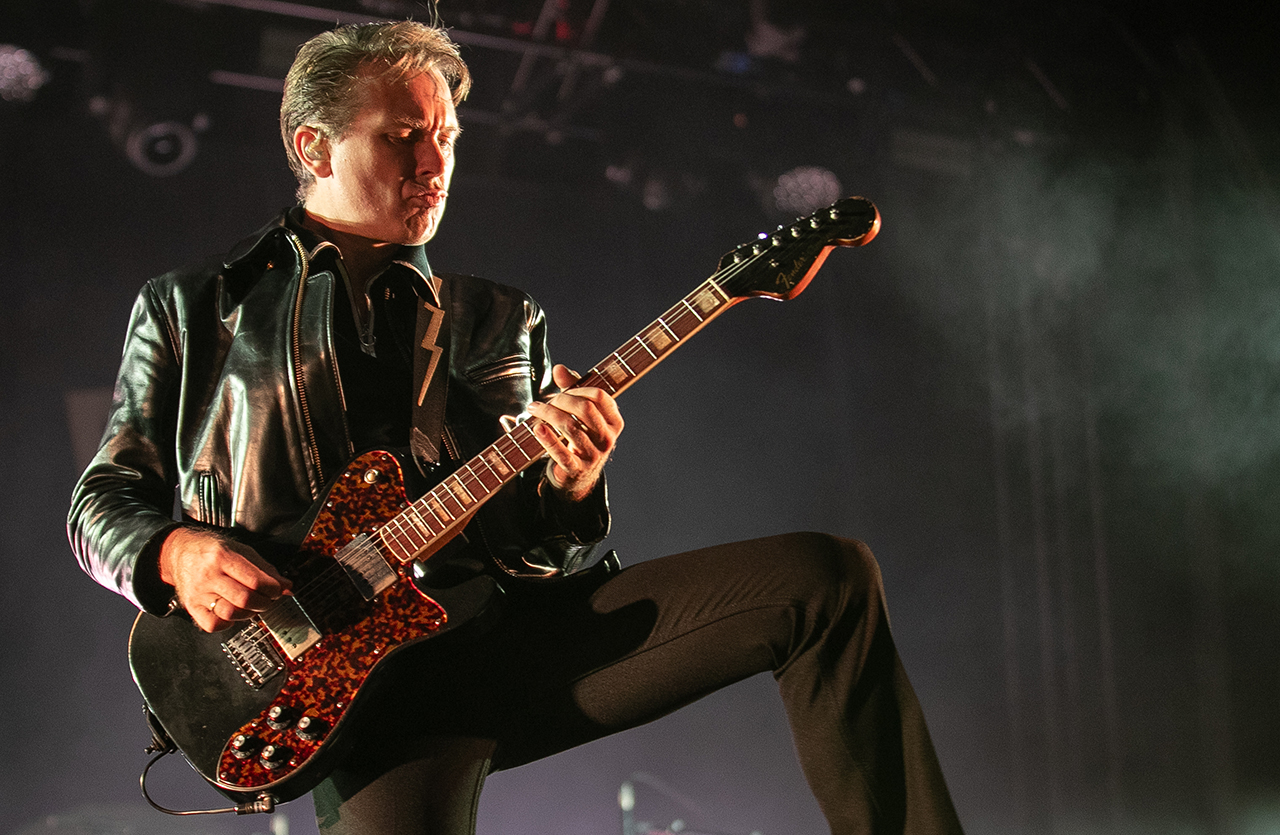
When you first broke though, right at the end of the Britpop era, there was still an appetite for guitar-led rock bands. Things seem to have moved away from that since then. Do you sense that?
“When you’ve been following music for a long time, you realize things go in and out of vogue on some kind of rotation. Music critics seemed to take a position; the whole poptimism thing, about 10 years ago, was a rejection of guitar bands, for a celebration of the world of mainstream, lightweight pop.
When you hear a guitar playing a great riff through an amplifier, you can only pretend for so long that it’s not exciting
“I remember at the time thinking that it was just fashion. The thing is, when you hear a guitar playing a great riff through an amplifier, it sounds fucking great. You can only pretend for so long that it’s not exciting, but then the rest of the world realizes, ‘Hang on, you’re bullshitting me – the sound of a guitar is fucking amazing!”
“Certainly, with the audiences at the shows we’ve been doing recently, there’s been a strong younger presence, and rightly so. Guitar bands are fucking magic. I remember the excitement I had when I was young, going to see guitar bands; it was the same for me then as it is for young kids now.”
What were you listening to as a kid that made you want to start playing?
“My dad had a crappy nylon-strung acoustic guitar. He used to play in beat groups at local pubs and clubs in the ’60s – Bo Diddley, Buddy Holly and all that kind of stuff. So I was aware of that music from when I was very young.
“Peter Green was a huge influence; my friend Andrew and I were obsessed with early Fleetwood Mac and the Beatles at school. The very first thing I ever recorded, at about 14, was with Andrew on a little tape recorder, playing Fleetwood Mac’s Oh Well.
“That’s such a great riff. I’ve always loved a good riff. I loved Leadbelly and Howlin’ Wolf with Hubert Sumlin, but at the same time I liked things like the Monochrome Set, the Minutemen and the Waitresses.”
I hear a lot of Eastern European influence in your playing at times.
“My dad’s Greek, and I grew up listening to a lot of Greek music. He had a bouzouki when I was a kid, and there’s even a little bouzouki on this album. I think it’s proof that whatever you listen to as a kid goes into your influences, and at some point it all comes back out of you.”
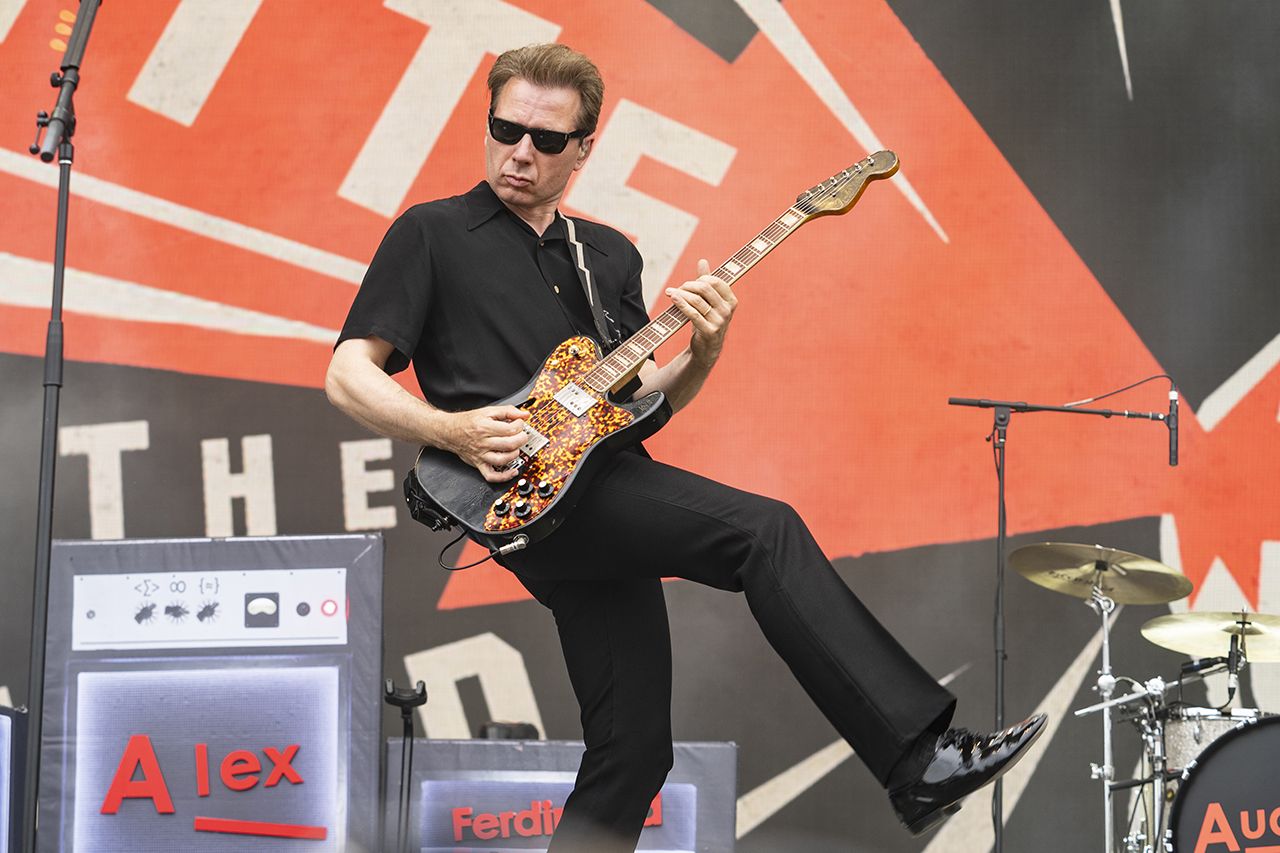
What were the go-to guitars for the album?
“I use an old Tele Deluxe quite a lot. I love the late-’70s Grecos from Japan; I have a couple of their Strat-style guitars. They’re on a par with Fender Custom Shop guitars for quality, much like the old Tokais were.”
What about amps?
Every idea won’t be genius. You have to go through the bad stuff to get to the good stuff
“I really like small British amps from the ’60s, like the blue Watkins Westminster. A lot of the guitar on this album was played though that. I’ve got a friend called Al, who keeps all my amps running. He’ll tweak things and add modifications, like adding an extra jack on the back so I can run the amp through an external speaker. The Westminster sounds amazing through an Alnico 12” cab.
“I’ve got a ’50s Fender Champ that I bought really cheaply while on tour in Portland, because the speaker had blown; it has an incredible sound. I like the earliest Traynor amps as well, but they’re a little too loud for my studio.
“I like to use the old Watkins tape echo Copycats. I’ve got a couple of valve ones and also a couple of transistor units. I use them to drive the amp, even if I’m not using the delay – they really warm the sound up. I think the secret to getting a great sound out of an amp on record is all about how you mic it up. When you get it right, you don’t need to use any EQ on the desk.”
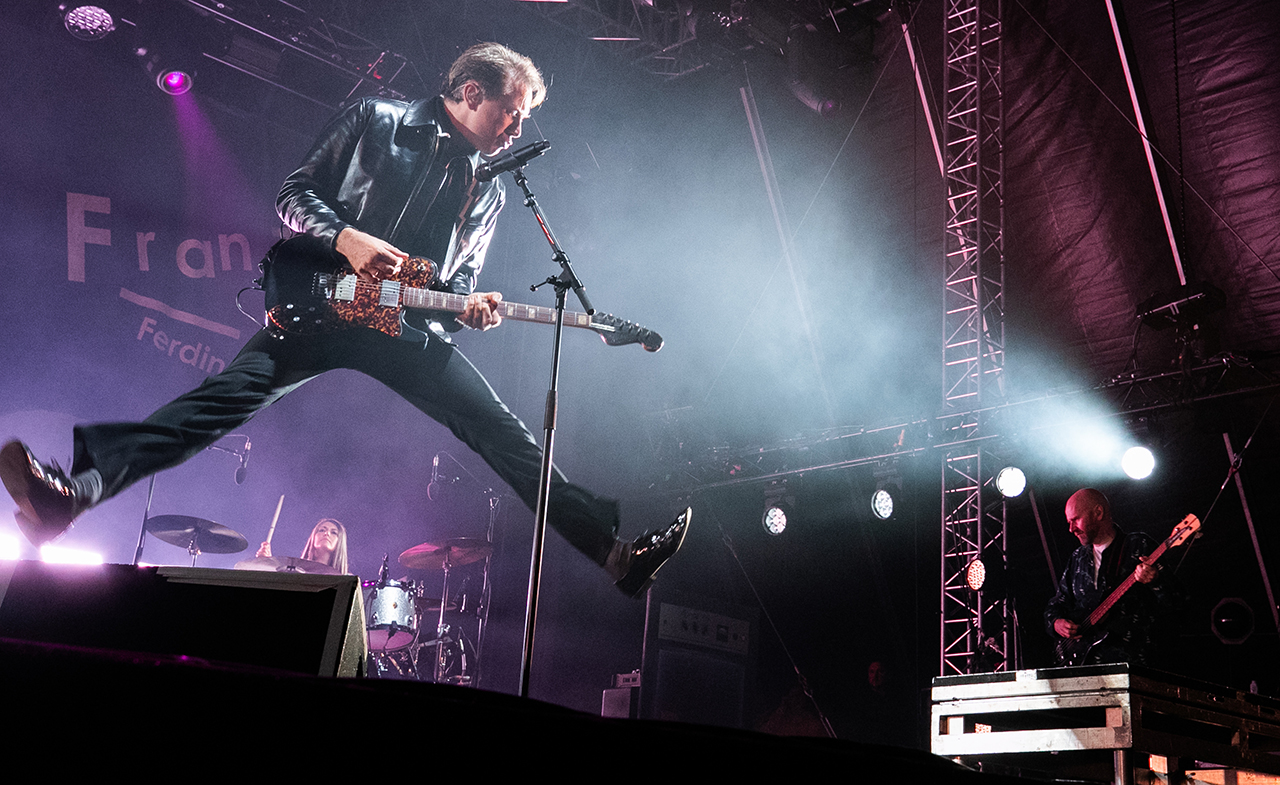
Your songs are full of great riffs and melodic hooks. How do you work out parts with second guitarist Dino Bardot?
“One thing we like to do is sit and loop the song, then keep going around in turn, coming up with something entirely different from what we did the last time. We’ll take a break, then listen back and pick the parts we like and use them to build the song.
“There are other times where I’ll know exactly what the riff is and what everyone should be doing. I’m very interested in structuring and arranging songs. The trick is to not be too precious and realize that every riff and idea you come up with won’t be genius. You have to go through the bad stuff to get to the good stuff.”
You record everything in your own studio. What’s the most important thing you’ve learned about the process?
“There’s no secret, really. When you play together live a lot, you become so tight that it’s almost telepathic. That’s how you get a good recording in the end – get a good band, write a good song, stick some mics up and just do it. That’s all you need, and never mind all the bullshit that’s talked about making an album!”
- The Human Fear is on sale now.
Mark is a freelance writer with particular expertise in the fields of ‘70s glam, punk, rockabilly and classic ‘50s rock and roll. He sings and plays guitar in his own musical project, Star Studded Sham, which has been described as sounding like the hits of T. Rex and Slade as played by Johnny Thunders. He had several indie hits with his band, Private Sector and has worked with a host of UK punk luminaries. Mark also presents themed radio shows for Generating Steam Heat. He has just completed his first novel, The Bulletproof Truth, and is currently working on the sequel.
You must confirm your public display name before commenting
Please logout and then login again, you will then be prompted to enter your display name.

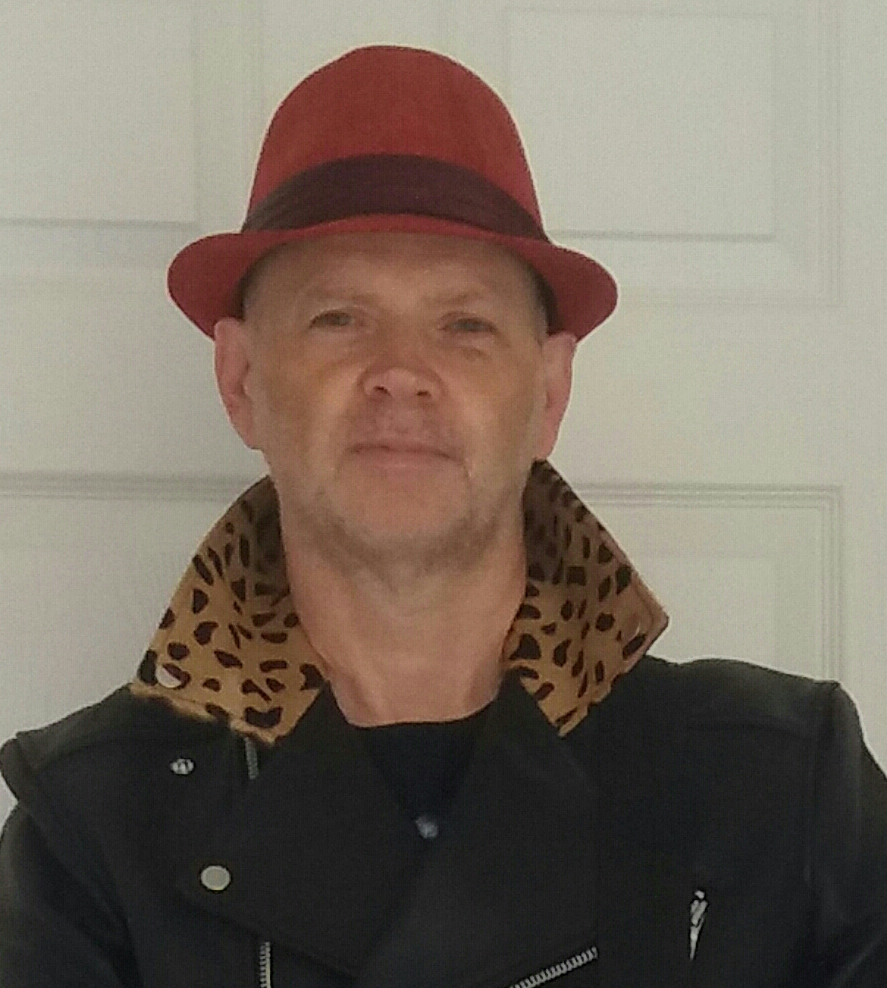


![[from left] George Harrison with his Gretsch Country Gentleman, Norman Harris of Norman's Rare Guitars holds a gold-top Les Paul, John Fogerty with his legendary 1969 Rickenbacker](https://cdn.mos.cms.futurecdn.net/TuH3nuhn9etqjdn5sy4ntW.jpg)







